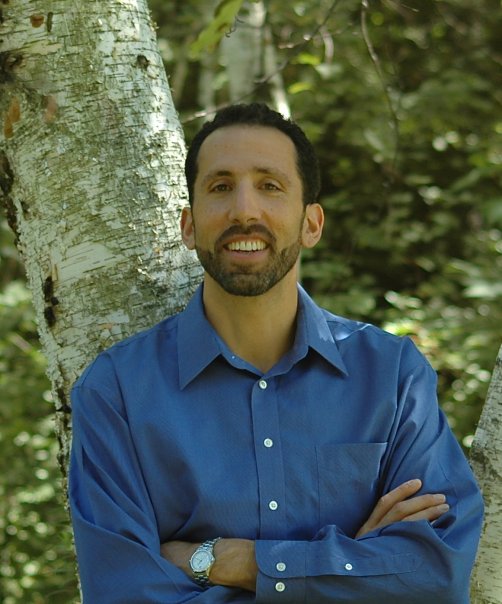It Happens
By Joseph DiCenso
“Where are you?” She sounds small and there’s an edge to her voice.
“I’m on my way.” I smile, thinking I recognize the impatience or entitlement in her whine. “If you look up the street you’ll see my headlights.” I try to make my smile audible to mask my mild annoyance: I said it would take me about 5 minutes!
I see her step to the curb and lean out, peering down the dark side street. “OK, I see you,” she says, her words clipped.
We hang up and in a few seconds she is opening the passenger door and climbing into the car. Her eyes are heavy-lidded and her shoulders huddled. I assume she’s feeling embarrassed that she missed her bus to her karate class–maybe chilled, too, from waiting out in the frigid night air.
 Then she tells me: three young men, brash talk and horseplay as they walk to a car near where she waits for me just down the street from the police station. A cup placed on the roof of their car. A glance over at her. Her back against the wall of the building, looking straight ahead. They happen to be in her line of sight. One of them says loudly, “What–you wanna piece of this?!” She looks away.
Then she tells me: three young men, brash talk and horseplay as they walk to a car near where she waits for me just down the street from the police station. A cup placed on the roof of their car. A glance over at her. Her back against the wall of the building, looking straight ahead. They happen to be in her line of sight. One of them says loudly, “What–you wanna piece of this?!” She looks away.
What she wants is to rip into them in Spanish-stunning them, perhaps. She wants to yell, “Y’know, it’s assholes like you that make me want to move back to Spain.” She wants to challenge, “What makes you think you get to talk to me that way?” Instead, she averts her eyes and makes a well-rehearsed move, throwing up an energetic barrier, like the metal gates used to protect city storefronts at night.
In the safety of the car with me, she opens the gates. Her voice breaks and the tears follow. Tears of hurt and frustration. Tears of why?. She asks questions I’m not sure how–or whether–to answer:
– How is it possible that I’ve lived for seven years in a machista country and have never felt as violated as I often do in Northampton [where she lives]?
– I lived in a ‘foreign’ country from age 16 to 23, and trained in martial arts and self-defense for five years and yet I was still scared. What is it like for women and girls who don’t have these skills?
– What does it say that those three males seemed to have no concern about how close we were to the police station?
I’m flooded with thoughts and feelings:
grateful that she trusts me enough to let me in;
painfully aware that I’m also ‘one of them’–a male raised in the same sexist society that schooled those three young men, raised on Penthouse and Playboy, trained to think of myself as superior to women, and women as parts (breasts, thighs, ass);
fearful that my ‘enemy status’ will be revealed even as I try to comfort and support her
angry at the three young men and wanting to get in their face and slap some sense into them;
torn up that this 24 year-old, beautiful, powerful, fiercely alive young woman sitting next to me, who has come to see me as her Dad and whom I now think of as my daughter, is not safe from the devastating blows sexism daily delivers to women.
Getting It
Somehow, even after the years of work I’ve done in the realm of social justice, this is a threshold moment: I suddenly get it at a depth I never have. Perhaps because I’m the “Dad,” my insecurities and defenses don’t rear up reflexively as they so often have in the past. Maybe it’s that protective dad-love, but I am like a window wiped clean: effortlessly present, alert and in touch with my heart.
All I can think to say is, “I’m glad you’re telling me about this and I feel mad at those men and sad for you that this happened.” After listening for a while more, I tell her I can imagine her writing about this, maybe submitting a piece to one of the local papers. I’ve been helping her with her school papers and we share a love of writing and support each other’s writing disciplines. There’s a brief silence; then I say, “Maybe I’ll write a letter to the editor!”
After dropping her off at the dojo, I fantasize about having arrived a few minutes earlier and catching the three men in the act. My mind treats it much like the scuffles I would fret over, post-mortem, in high school, wishing I’d only said that–or that.
But I can’t sustain the heroic drama. I’m too aware that my anger at them stems as much from my fear and shame that I, too, carry the virus of sexism as from my desire to make a better world for Tiffany, my step-daughter. Letting the fire of my outrage burn down, in the ashes I find a dull, aching grief: for Tiffany and all women and girls who have the invisible, seven-day-a-week, job of immunizing themselves from the external and internalized oppression of sexism; for those three young men, who’ve swallowed the pill of male supremacy and the desecration of the feminine, and whose humanity has been thereby crimped; and for myself, who may be more aware of my socialization and its distortions, but who nonetheless feels their constriction around my heart and mind–and wonders how much more trust, closeness and joy might be available were I able to snip those bands.
This hurts my heart–and my head. It’s hard thinking and writing about this stuff, hard to get clear or to be brief with what’s bubbling up in me.
I will let this suffice for now–my ‘letter to the editor’, as it were:
Speaking Out
To the three young men (and the part of me and all men they represent) I want to say this:
When you treat a women as if you own her, as if she is less than human, as if she’s an object of your gratification–sexual or otherwise, you make your world a more desolate place; and you pound yet another nail in the coffin of your already compromised humanity. You harm not only your mother, sisters, daughters, nieces–all of the women and girls in your life, but the “feminine” side of yourself. This may seem a slight consequence until you notice it’s been ten years since you last cried; or until you realize you don’t allow yourself to be as affectionate with your 5-year-old son/grandson/nephew–to hold him, kiss him, listen tenderly when he cries–as you would a little girl, and instead subtly or viciously shame him for acting ‘like a girl'[1]; or until you bump up against the dullness, the deadness, in your intimate relationship(s), like running into one-and-a-half inch steel plate where your “heart” is supposed to be.
To the ‘tough guy’ I say there’s a way tougher challenge than toeing the line of modern “masculinity”. If you really want to prove your mettle, try standing in the line of fire when you interrupt a sexist joke, or publicly challenge an individual act or public policy that demeans or disadvantages women. If you want to show and feel your courage (your heart), take the risk of letting yourself be seen as a whole man, who can love fiercely and tenderly, cry when he’s sad, and choose who and how he wants to be in the world.
Let’s redefine the taunt, “Man up,” to mean climbing out of the limiting, damaging definition of manhood and claiming our full, 360-degree humanity.
Getting It Again and Collaborating
When I shared what I wrote with Kathrin, my partner, who edits all of my newsletters, and with Tiffany, a potent and important conversation unfolded. This ultimately led to my asking Tiffany to contribute to this piece, speaking to her reaction to my writing and to what she wants from me and other men who are challenging sexism. I am humbled by it, seeing that I still have lots to learn on this path, and I feel incredibly lucky that she is willing to challenge me.
Here’s what Tiffany wrote:
Imagine that you live in a world where you are constantly aware of the threat of rape, where people look at your body parts before they look at your face, where it’s possible to have “Nice tits!” yelled at you as you walk to a family funeral, where sex acts are shouted to you in the streets. Women don’t have to imagine this–it’s our reality.
I am outraged that a man’s comment made me look away submissively, tired of putting up with men’s pick-up lines on the bus, and sick of men in the US who seem to think it’s OK to treat me as if I were an object. However, I’m also sick of men turning sexism into being about them. To my Dad and his male readers I want to say, “It’s not about you!” Please hear me when I say that I love your support and anger, and I agree that men need to change–and that breaking down the ‘tough guy’ image is an excellent starting point. But, when even women’s harassment gets turned around to a focus on men, it’s a bit of a slap in the face. Instead, I would love for your first thoughts to be about supporting women and girls.
You can do this by helping the women and girls in your life be strong and powerful and able to navigate the sexist culture. Tell them you support them being powerful and encourage them to take self-defense classes. Tell them you want them to have the power to say no, and tools for when someone gets too close or says something scary. Tell them about Hollaback![2] and talk about the stories you read there. Support young girls and women to speak up, to shout “No!” and to feel strong and happy.
It is wonderful to stop a sexist joke or challenge the tough guy syndrome, but please remember that you are not the one who gets “innocently” felt up on a crowded bus, you’re not the one who’s called bitch when you refuse to have a drink with some admirer, and you’re not the one who has to fear walking down an empty street at night.
[1] Adapted from educator and activist Tony Porter’s “A Call to Men” TedWomen talk, Dec. 2010 http://www.ted.com/talks/tony_porter_a_call_to_men.html
[2] Hollaback! is an international movement to end street harassment.
– is a deeply personal issue that everyone decides for himself. Sometimes the price is high, sometimes low. But this is not very important for life. Life is an interesting thing. And the price on Viagra – too.


